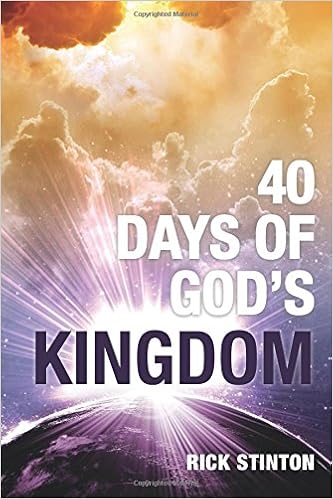In the wake of the Paris terrorist attacks, this is the typical response I’ve seen on Facebook from Christians:
“We need to send in our troops and let them send those evil men in ISIS to hell.”
Hmm.
I’ve been a Christian for almost 40 years. I don’t pretend to be a very good Christian, by the standard of examining one’s sins and one’s ability/inability to live the Bible perfectly. Still, as I grow older, I cannot escape the truth that the Kingdom of God runs antithetical to just about everything you and I think.
Let me restate that: I guarantee that if we have a thought, it’s likely counter to the Gospel.
There’s a reason Jesus can’t just remake us and that we must die instead to be truly born again. Everything we do and think is wrong. A makeover won’t fix anything, because our entire being is tainted to the most granular level. We will never live in the Kingdom of God if we don’t die to ourselves and to the world’s ways.
Case in point:
“You have heard that it was said, ‘You shall love your neighbor and hate your enemy.’ But I say to you, Love your enemies and pray for those who persecute you, so that you may be sons of your Father who is in heaven. For he makes his sun rise on the evil and on the good, and sends rain on the just and on the unjust. For if you love those who love you, what reward do you have? Do not even the tax collectors do the same? And if you greet only your brothers, what more are you doing than others? Do not even the Gentiles do the same? You therefore must be perfect, as your heavenly Father is perfect.
—Matthew 5:43-48 ESV
Jesus comes into the world and turns it upside down. His Kingdom is the opposite of the conventional wisdom, the status quo, the way things are and should be. He messes with everyone’s thinking.
 In the Gospels, whenever we see Jesus starting with “You have heard it said…, but I say to you…” we know His upside-down Kingdom is on display.
In the Gospels, whenever we see Jesus starting with “You have heard it said…, but I say to you…” we know His upside-down Kingdom is on display.
Do we love our enemies and pray for them? Do I need even to ask that question?
I want to unpack the strange aside in that Matthew passage because it plays into another of our wrong thoughts.
Jesus talks about good and evil and how the same daily events happen to both. I want us to think about that a different way. Not that there are two groups at all, but only one. That nature itself reveals only one, those who get wet with rain and then dry in the sun. Those who receive one justice. Those who are, at once, both insiders and outsiders. There are no true distinctions between men.
Why is the Gospel offensive and scandalous? In part because it crashes into our notions of good and evil. Because it says the sinners get into Heaven and the religious get locked out. The peacemakers blessed, not the warriors. The poor raised up and the rich brought down.
The scandalous Gospel goes on to say that the worst bastards the world has ever known are forgiven. Pedophiles, murderers, sex traffickers, pimps, whores, assassins, terrorists–you know, the evil people. And we good people hate that. We want justice.
But wait a second…
Jesus concludes His statement on loving one’s enemies by reiterating that we must be as perfect as God. And suddenly, all these labels of who is good and who is evil, who is neighbor and who is enemy, are pointless, because compared to a holy God, even the greatest of our saints is a feces-encrusted douchebag.
With the Gospel, Jesus defenestrates all this talk of who is good and who is evil. The “good” man who calls another a fool murders his victim just as readily as the “evil” ISIS commander does. Because all have sinned and fallen short of the glory of God.
Jesus shows us that it isn’t just that we love our enemies, but that we are the enemy as well. Enemies of God. Enemies of each other. Evil down to the core, even the so-called best of us. One mankind, wickedness personified.
The Kingdom of God is here, and everything we think becomes darkness against its light.
When we are born again in Jesus through grace, He burns “us” down because we can’t think anything but darkness. The only way to get right is to start over inside a Kingdom with rules utterly incomprehensible to normal thought.
When you and I think X, the Gospel is likely saying the opposite of X. To think rightly is to go against everything that makes sense within a fallen worldview and to embrace what seems like foolishness.
The Bible supports this:
For Jews demand signs and Greeks seek wisdom, but we preach Christ crucified, a stumbling block to Jews and folly to Gentiles, but to those who are called, both Jews and Greeks, Christ the power of God and the wisdom of God. For the foolishness of God is wiser than men, and the weakness of God is stronger than men. For consider your calling, brothers: not many of you were wise according to worldly standards, not many were powerful, not many were of noble birth. But God chose what is foolish in the world to shame the wise; God chose what is weak in the world to shame the strong; God chose what is low and despised in the world, even things that are not, to bring to nothing things that are, so that no human being might boast in the presence of God.
—1 Corinthians 1:22-29 ESVBut we impart a secret and hidden wisdom of God, which God decreed before the ages for our glory. None of the rulers of this age understood this, for if they had, they would not have crucified the Lord of glory. But, as it is written, “What no eye has seen, nor ear heard, nor the heart of man imagined, what God has prepared for those who love him”—these things God has revealed to us through the Spirit. For the Spirit searches everything, even the depths of God. For who knows a person’s thoughts except the spirit of that person, which is in him? So also no one comprehends the thoughts of God except the Spirit of God. Now we have received not the spirit of the world, but the Spirit who is from God, that we might understand the things freely given us by God. And we impart this in words not taught by human wisdom but taught by the Spirit, interpreting spiritual truths to those who are spiritual. The natural person does not accept the things of the Spirit of God, for they are folly to him, and he is not able to understand them because they are spiritually discerned. The spiritual person judges all things, but is himself to be judged by no one. “For who has understood the mind of the Lord so as to instruct him?” But we have the mind of Christ.
—1 Corinthians 2:7-16 ESV
People who are not in Jesus cannot comprehend the upside-down Kingdom He rules. Only those who have His mind, because they have His Spirit, can.
The unbeliever cannot comprehend “love your enemies.” The unbeliever will only see justice against the wicked enemy—and yet will also miss that the wicked enemy is the face staring back from the mirror of God’s perfection.
In conclusion, I offer this…
We live in confusing times, when the foolishness of the Gospel in the world’s eyes will only grow in contrast. People who call themselves Christians will be deceived by the message of the world’s fallen way of thinking. Christians will support ungodly responses to the world’s problems. Christians will use the Bible to back up those fallen ways of thinking. This is happening even now.
More than ever, I think we Christians need to do what the early Church did. When that Church encountered seemingly intractable problems, it convened meetings, and with Scripture, personal experience, and the speaking of the Holy Spirit, worked out answers as a group. See Acts 15, for instance.
I don’t believe we do this. We certainly do not do it in our local churches.
How should we Christians think about X in a confusing world? Our answer most likely will be the opposite of the way the world thinks, and getting on board with that countercultural thinking among the assembly of Spirit-filled believers is the only way we will navigate the confusion that now lies before us.
Otherwise, we stand ready to run down the world’s wide path, mistakenly thinking Jesus is waiting for us at the end.


